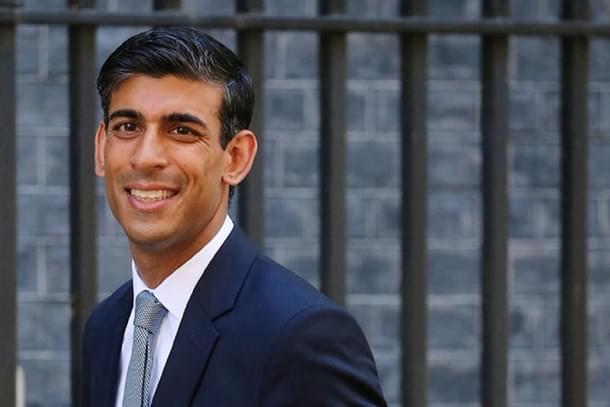Economy
India Likely To Lower Import Taxes On UK Electric Vehicles To Bolster Free Trade Deal
Bhuvan Krishna
Nov 08, 2023, 03:36 PM | Updated 03:36 PM IST
Save & read from anywhere!
Bookmark stories for easy access on any device or the Swarajya app.


India is suggesting a decrease in import tariffs on certain electric vehicles from the UK, with the aim of finalising a free trade agreement between the two countries by the end of this year, according to a report from Economic Times.
The Indian government is reportedly contemplating a reduced tariff rate of 30 per cent on 2,500 electric vehicles to be imported from the UK each year.
The vehicles eligible for this concession would be priced above $80,000.
According to the same report, India currently imposes taxes ranging from 70 per cent to 100 per cent on completely built unit cars that are imported, depending on their value.
The ongoing free trade talks between the UK and India have been delayed due to the unresolved issue of import concessions on electric vehicles.
UK Prime Minister Rishi Sunak and Indian Prime Minister Narendra Modi had aimed to finalise the agreement by the end of last month, but it is now expected that the announcement of a deal will be postponed until December, as reported by Bloomberg News.
India, known as the world's most populous country, has seen a growing interest in electric vehicles among middle-class and wealthy consumers.
However, the widespread adoption of EVs has been hindered by the expensive price tags, limited choices, and insufficient charging infrastructure.
Nonetheless, expanding the electric vehicle market in India could potentially accelerate the transition to cleaner transportation in a country plagued by severe air pollution.
According to BloombergNEF, electric vehicle sales in India accounted for only 1.3 per cent of the total 3.8 million passenger vehicles sold last year, reaching a total of 49,800 units.
In the price-sensitive Indian market, Tata Motors Ltd's Nexon.ev, the top-selling electric car, is priced below 1.5 million rupees ($18,000). In contrast, luxury automakers BMW AG, Mercedes-Benz Group AG, and Volkswagen AG's Audi sell electric cars in India for over $80,000.
The Indian government, under Modi's leadership, is proceeding with caution regarding the importation of electric vehicles (EVs) in order to foster the growth of a domestic manufacturing industry for EVs and their components. In 2021, the government unveiled a production-linked incentive programme worth $3.1 billion to encourage local production of EVs.
India has not yet made a final decision on import duties for electric vehicles, as per sources familiar with the discussions.
India and the UK have both made concessions on various matters, such as the lowering of tariffs on British automobiles and scotch whisky, according to another report by Bloomberg News.
Both countries anticipate that the free trade agreement will lead to a two-fold increase in bilateral trade by 2030, achieved through the reduction of tariffs and improved market access.
Additionally, this deal is seen as a significant achievement for both leaders, as it is considered a valuable outcome of Brexit for the UK and a means to enhance India's manufacturing aspirations.
India applies various import duties on cars, with a tax rate ranging from 15 per cent to 35 per cent for vehicles bought from abroad in unassembled form.
Bhuvan Krishna is Staff Writer at Swarajya.





